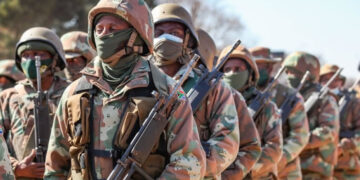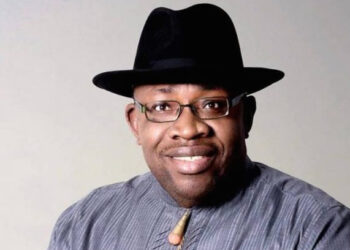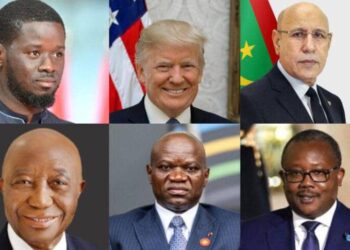Leaders from Southern Africa have decided to withdraw their forces from eastern Democratic Republic of Congo, where they have been assisting the national army in its fight against rebel groups.
The troops were initially deployed two years ago to support the Congolese military against the M23 rebels, an armed faction backed by Rwanda that has taken over vast territories in the resource-rich east this year.
At least 19 soldiers from South Africa, Malawi, and Tanzania lost their lives when M23 fighters seized Goma, the largest city in the region, in January.
The violence has resulted in thousands of deaths, while hundreds of thousands have fled their homes, leaving many displaced and vulnerable.
There are growing concerns that the situation could spiral into a larger regional war.
M23 rebels have continued their offensive, capturing more ground and, most recently, taking control of Bukavu, the region’s second-largest city, last month.
South Africa’s military mission has been widely criticised at home, with opposition figures and the public questioning its effectiveness, especially after its troops suffered casualties.
Sandile Swanda, a political analyst from South Africa, described the situation to the BBC as an “embarrassing” moment for the country.
“The rebels are very strong. This is a full-on war, and South Africa is hardly ready for any such war,” he said.
He added: “No country in the SADC region is ready for this war – psychologically, militarily, and politically.”
In February, Malawi’s president confirmed that his country’s soldiers would be leaving DR Congo, though he did not explain why.
During a virtual meeting on Thursday, leaders of the 16-member Southern African Development Community (SADC) agreed to begin a “phased withdrawal” of their forces from DR Congo. The summit was held in Harare, Zimbabwe’s capital.
Despite the decision to pull out, SADC leaders stressed that the regional bloc would continue to “support interventions aimed at bringing lasting peace”.
No explanation was provided for the withdrawal.
SADC urged diplomatic and political efforts to resolve the crisis.
Previous attempts to restore peace in DR Congo have not been successful.
This was the third emergency summit SADC has convened in recent months to discuss the situation in DR Congo.
It remains unclear how many SADC soldiers are currently stationed in DR Congo, though the initial plan was to send 5,000 troops.
South Africa, which was leading the deployment, committed 2,900 soldiers, while Malawi and Tanzania contributed the rest.



































